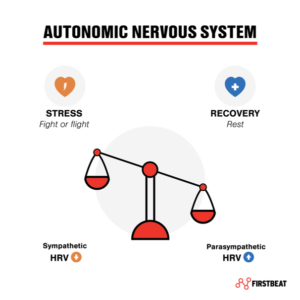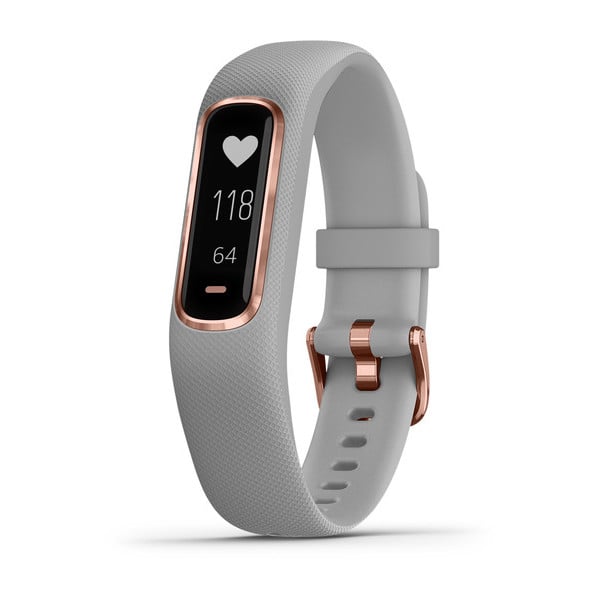
How Garmin’s Body Battery Can Teach You to Thrive
Physical activity, stress, rest and sleep. Each has a discernible impact on your ability to keep pace, tackle challenges, and adapt to your environment. Garmin’s new Body Battery™, powered by the Firstbeat analytics engine, brings each of these elements together to form a simple, easy-to-follow reporting of your body’s energy levels.
Based on feedback from your own physiology, Body Battery delivers personalized insight to help you navigate from survive to thrive. Success happens when you manage your resources wisely.
Charging your Body Battery
Your body needs rest. The energy you need to be at your best mentally and physically accumulates during periods of recovery when your arousal levels are low.
Quiet, restful moments, and short naps during the day can boost your energy levels, but night time is when the real magic happens. There’s no escaping the fact that night-time sleep is the most important time for recovery.
What constitutes good sleep from the perspective of recovery and how can we recognize it?
In terms of recovery, good quality sleep is marked by an increase in heart rate variability (HRV), meaning slight irregularity in the length of time between consecutive heartbeats. Normal and healthy, this is a sign that your parasympathetic nervous system is active and dominant over your sympathetic nervous system.
Experts typically recommend adults get between 7-9 hours of sleep each night. That’s a big range, but different people need different amounts of sleep to re-energize. How much sleep you need, personally, is reflected in your Body Battery.
Keep in mind that not all sleep is created equal. What you do in the evening before bed can have a significant impact on how full your battery is in the morning. Alcohol consumption, even in small does, reduces sleep quality. Other factors that frequently diminish or delay the restorative power of sleep include late evening workouts, watching exciting television programs, and browsing social media in bed.
Feedback over time offers an opportunity to discover what works best for you.
Activity and stress drain your battery

The demands you place on your body throughout the day deplete your body’s resources, represented by the draining of your Body Battery. Physical activity takes a substantial toll, whether you’re working out or doing physical labor, but your stress levels also play a role.
What do we mean by stress? Stress is a state of arousal and your body’s natural, healthy response to the varying challenges of life and environment. It is an elevated physiological state resulting from activation of your sympathetic nervous system (fight-or-flight) and can also be identified through analysis of your heartbeat.
Stress gets a bad rap because uncomfortable experiences are often stressful. Getting stuck in traffic, approaching deadlines, demanding professional relationships, being the target of aggressive behavior are all negative emotional experiences that typically elicit a stress response from your body. Happier times can also trigger stress responses. Enthusiasm, excitement and anticipation are also emotional states that correspond to elevated activation levels in your body.
The joyful anticipation of Christmas morning is certainly more fun than winding anxiously through airport security, but from a physiological perspective both have a draining effect and need to be offset with adequate recovery.
Powering up for mental health
The mind-body problem has kept philosophers arguing for centuries. As a practical matter, things are a bit simpler. Your brain is part of your body. Your ability to think, focus, solve problems, regulate your emotions and cope are intertwined and influenced by your physiological state.
When you are well-rested, and your Body Battery is charged, you’re liable to notice you’re also at the peak of your mental powers. Physically fresh, mentally agile, it’s time to get things done.
Self-control and the ability to delay gratification are increasingly recognized by psychologists as depletable resources. Both are strong predictors of success in many areas of life. See for yourself. Are you more likely to slip up and make unhealthy choices when your energy levels are low?
It’s not just about doing homework, tackling projects at work, and sticking to your diet. Sports psychologists and statisticians working with professional athletes routinely confirm that our ability to think quickly and make smart plays decreases as fatigue sets in over the course of a game or long match.
Running on empty
Life is full of ups, downs, and surprises. Rarely do we have full control over when challenges appear. There will always be times when work needs to be done and your energy levels are running low. Sometimes you just need to grit your teeth and go but going through life perpetually on empty is a sure-fire recipe for missing out on your potential.
With that in mind, the occasional low energy day is no cause for alarm, especially if have a clear understanding of why you are in that situation. Getting sick? A bad night’s sleep? Pushing yourself to meet a deadline? These will pass, and you’ll be back in the saddle. If you find your battery is perpetually low, it might be time to start looking for areas to improve.
Knowledge is power, and it’s worth knowing that being low in energy doesn’t mean you can’t exercise. You may struggle to complete your workout, but you can probably muddle your way through. Just because you can doesn’t mean you should. The downside of banging out a tough workout with a low battery is that in the long term your efforts may ultimately be counterproductive.
The benefits, or gains, you get from training come in the form of physiological adaptations in response to challenges. Working out when you are worn down, haven’t slept, or have been experiencing excessive stress loads, means your body doesn’t have its full capacity for resilience.
Did you enjoy this article? Follow Firstbeat Technologies to keep up with the latest news and helpful tips from the exciting intersection of physiology and technology. For over a decade, Garmin has relied on the Firstbeat analytics engine to provide scientifically personalized training and recovery insights. Firstbeat also works with over 800 elite sports teams, including teams in the NBA, NFL, NHL, and nearly every major soccer league around the world.





